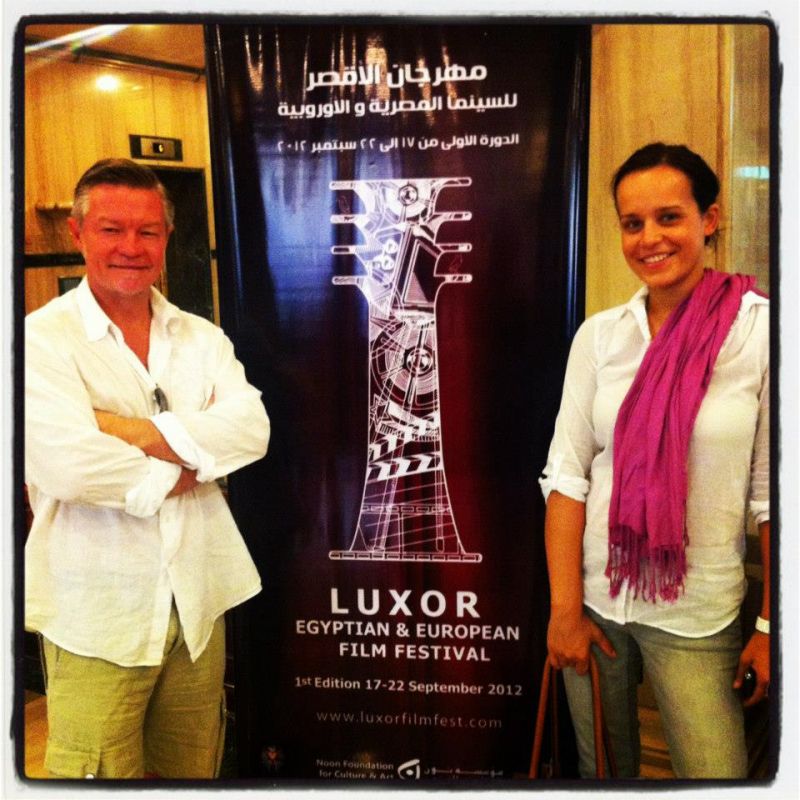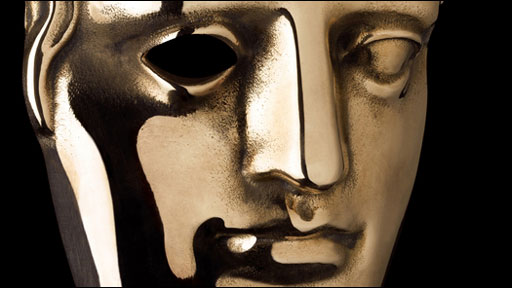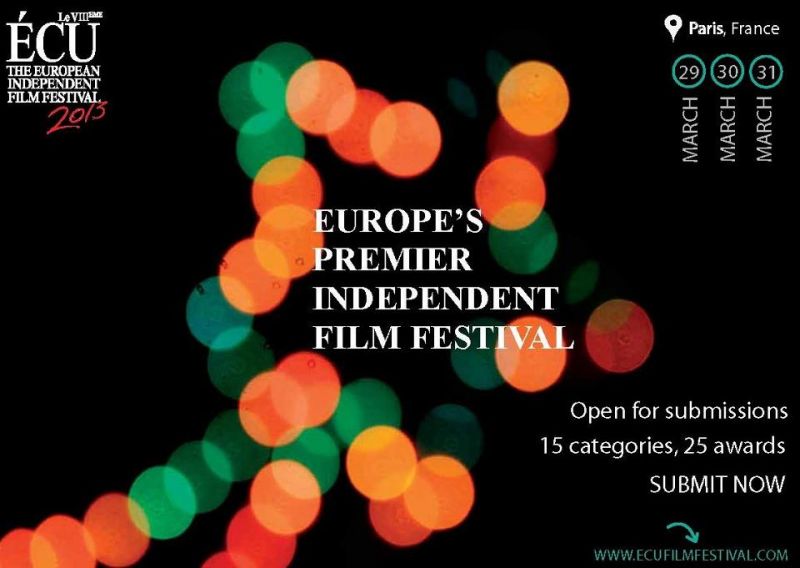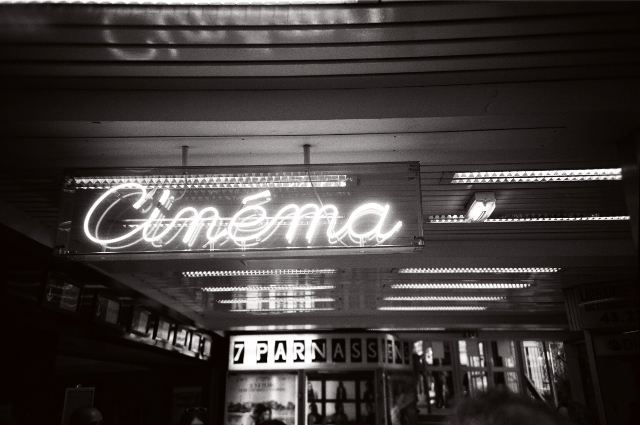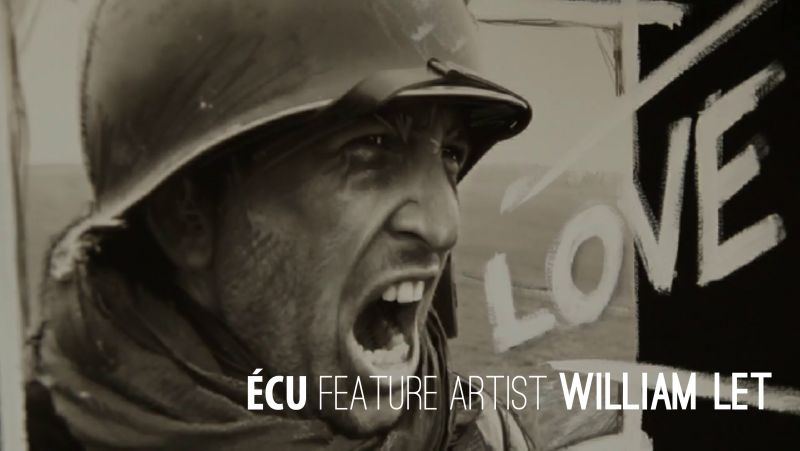|
|
||
|
Pro Tools
FILMFESTIVALS | 24/7 world wide coverageWelcome ! Enjoy the best of both worlds: Film & Festival News, exploring the best of the film festivals community. Launched in 1995, relentlessly connecting films to festivals, documenting and promoting festivals worldwide. Working on an upgrade soon. For collaboration, editorial contributions, or publicity, please send us an email here. User login |
Meet Indie Filmmaker: CATEDRAL
Without anything but a newspaper article to go off of, Aliocha and Alessio Rigo de Righi travelled to Spain to document the daily life of a Catholic monk who had been building a cathedral since the early 1950s. Not letting them film him at first, the two filmmakers exchanged their labor in order to document the monk’s life for seven days. CATEDRAL is a recent submission to ÉCU 2010’s European Documentary Short category. By Lindsay Mayer Q: Where did you get the idea for the documentary? When Aliocha and I were studying in New York, he first told me about Don Justo’s story that he had read in a newspaper. It turns out to be something we would talk about every time we would see each other so we promised ourselves that we would go film something there one day and so did we. Q: Where was the film shot? The film was shot in Mejorada del Campo, a little town just 20 km away from Madrid in Spain. Q: What is the subject of the film’s involvement with the church? How did you find him? We took a train from Paris to Madrid together with tons of ideas in our minds as how to approach him and how we could structure our eventual film. We didn’t have any production company behind us and very little money. When we first arrived in front of the cathedral it was noon, in a freezing cold early January day, and he was having lunch by the fire outside, so we went to him and ask if he would let us film him for a week. He directly refused, stating he had no interest in being filmed. We didn’t really know what to do since we didn’t have any money to offer, so after debating between each other we came to the conclusion that the best thing was to just offer him our help. We asked him if he would let us help him build the Cathedral for a week. He smiled and asnwered ‘yes’ then said ‘How much time for me? And how much time for you?’ That’s when we came to the agreement that we would work for him half of the days and he would allow us to film for the other half. We started working immediately. Q: What do you think he means when he says, “My mother was a godly woman. But I took it a little further”? He is completed devoted to his faith, he received a strict catholic education by his mother but he took it to a different level. His faith is not just the one of a Christian because he is giving the most a man can give – his entire lifetime. Q: Did you find out about any of the man’s background? In the early 1950s, the young monk Justo Gallego Martinez fell sick to tuberculosis while living in a remote monastery. On his sick bed he promised himself that if he were to come out alive he would dedicate the rest of his life to build a cathedral in honor of ‘Our Lady of the Pillar’ (Nuestra Senora del Pilar). Miraculously he escaped death and began building alone soon after without any professional help nor any architectural education. He started a construction that would span almost half a century, working all year long, every day of the week, apart from Sundays. Q: The film is plentiful with powerful quotes such as, “The greatest treasure a man can have is poverty. But everyone is obsessed with finding wealth therefore no one finds it.” You make these quotes part of the focus of the film. Can you elaborate on why you chose to? We always wanted to achieve a coherent work that could be sincere with the experience we have had there. At first we had all sorts of ideas about the structure of the documentary that we slowly began to modify during our journey in Mejorada with Don Justo. The core of the editing structure is based on three types of images carefully mixed together: The man with his words and thoughts, the man in movement in his constructive space and the work that is left to see. Q: In contrast, tell me about the story he recounts concerning the man who takes his wife up the mountain and then lets her go. It seems the conclusion he makes is: “What an idiot!” Actually the conclusion he makes is ‘They spoil everything.’ (’Estropean todo.’) as if he doesn´t understand man’s choices sometimes. He strictly believes his devotion to be the only possible way therefore any other way is a waste of time to him. Q: It seemed to me that the cathedral was in the midst of being rebuilt. But then at the end the audience learns a surprising fact… Can you tell me more about this? The intent with the editing was to slowly reveal the Cathedral from the smallest detail to the fuller view. Hopefully one can slowly get to know through the interviews this distant and taciturn man as he opens himself just as one can slowly discover visually the cathedral giving a sense that one helps constructing the place with one’s eyes. Q: What project do you have planned next? Alessio Rigo de Righi: I´m preparing a short movie based on an adaptation of Giulio Cesare that I will shoot in Buenos Aires this August and I’m working on a documentary on a road called “la ruta del desierto” in la Pampa Argentina. Aliocha: I am currently writing a trilogy of three short films elaborating around the subject of serial killing as I am also writing my first feature long script about a Man Hunt in the woods. 19.01.2010 | ÉCU-The European Independent Film Festival's blog Cat. : alessio rigo de righi aliocha catedral catholic monk don justo justo gallego martinez nuestra snora del pilar our lady of the pillar Spain tuberculosis Independent Interviews FILM FESTIVALS PEOPLE
|
LinksThe Bulletin Board > The Bulletin Board Blog Following News Interview with EFM (Berlin) Director
Interview with IFTA Chairman (AFM)
Interview with Cannes Marche du Film Director
Filmfestivals.com dailies live coverage from > Live from India
Useful links for the indies: > Big files transfer
+ SUBSCRIBE to the weekly Newsletter Deals+ Special offers and discounts from filmfestivals.com Selected fun offers
> Bonus Casino
User imagesAbout ÉCU-The European Independent Film Festival Hillier Scott Hillier Scott (ECU)
Scott Hillier, Founder and President of ÉCU - The European Independent Film Festival
Scott Hillier is a director, cinematographer, and screenwriter, based in Paris, France. In the last 20 years, Hillier has gained international recognition from his strong and incredible cinematography, editing, writing, producing and directing portfolio in both the television and film industries.
Scott began his career in the television industry in Australia. In 1988, he moved to London getting a job with the BBC who then set him to Baghdad. This opportunity led him to 10 years of traveling around world for the BBC, mainly in war zones like Somalia, Bosnia, Tchetcheynia, Kashmir, and Lebanon. After a near fatal encounter with a Russian bomber in Tchechnyia, Hillier gave up his war coverage and began in a new direction.
He moved to New York City in 1998. He directed and photographed eight one-hour documentaries for National Geographic and The Discovery Channel. Based on his war knowledge and experience, Hillier wrote and directed a short film titled, “Behind the Eyes of War!" The film was awarded “Best Short Dramatic Film” at the New York Independent Film and TV Festival in 1999. From that he served as Supervising Producer and Director for the critically acclaimed CBS 42 part reality series, "The Bravest” in 2002 and wrote and directed a stage play called, "Deadman’s Mai l," which ran at Le Théâtre du Moulin de la Galette in Paris during the summer of 2004. He then became the Director of Photography on a documentary titled, “Twin Towers." This was yet another life changing experience for Hillier. The riveting documentary won an Academy Award for "Best Documentary Short Subject" in 2003. In 2004, Hillier changed continents again, spending three months in Ethiopia. He produced “Worlds Apart,” a pilot for ABC America / True Entertainment / Endemol. As you can see, Hillier was and is always in constant movement and enjoys working in a number of diverse creative areas including documentaries, music videos, commercials, feature and short films.
Scott studied film at New York University and The London Film and Television School. He also studied literary non-fiction writing at Columbia University. Hillier's regular clients include the BBC, Microsoft, ABC, PBS and National Geographic. Between filming assignments, he used to teach film, a Masters Degree course in Screenwriting at the Eicar International Film School in Paris, France and journalism at the Formation des Journalistes Français in Paris, France.
View my profile Send me a message The EditorUser contributionsUser links |




















